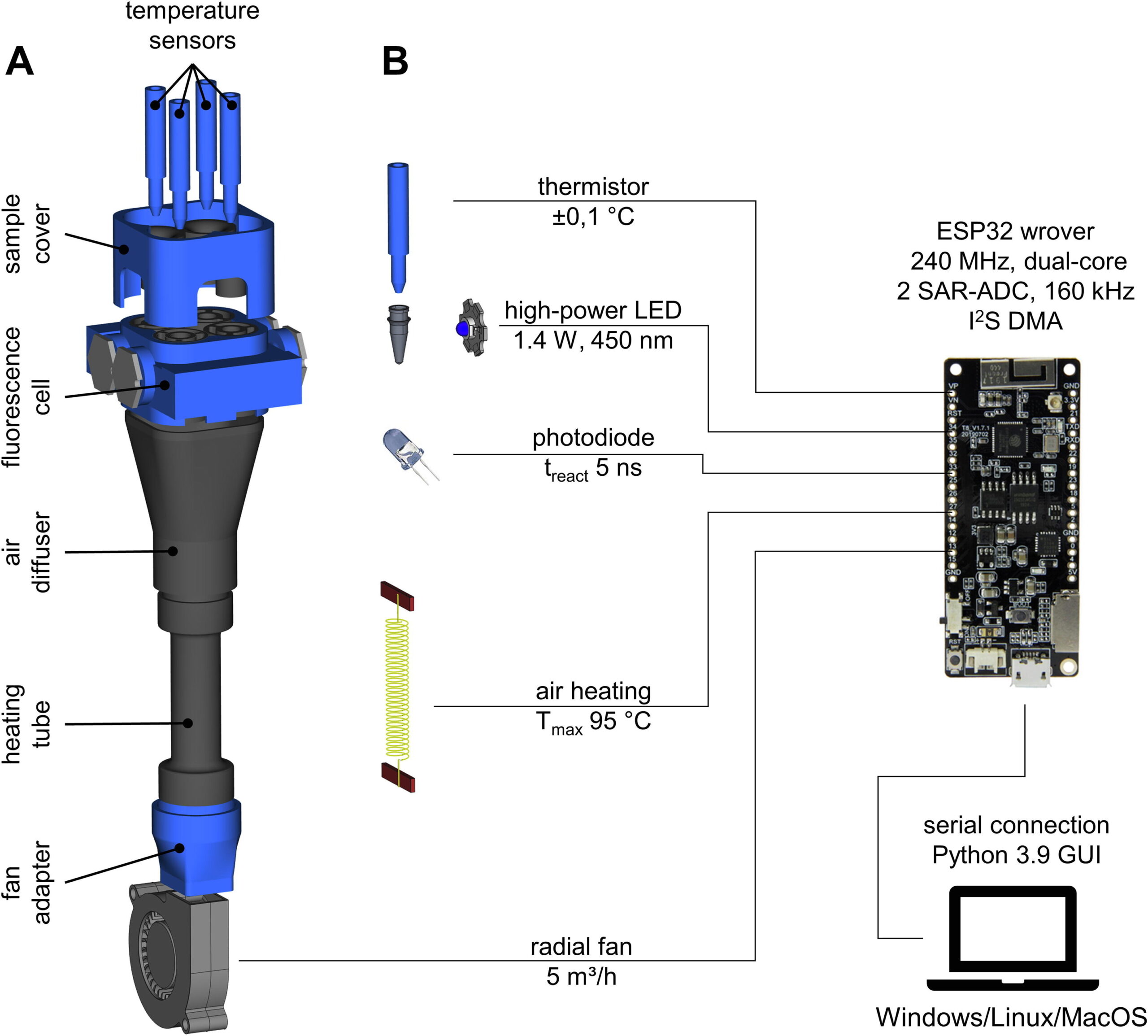The openDSF is an innovative low-cost, 3D-printable differential scanning fluorometer designed for protein and RNA melting experiments. This device provides an open-source alternative to commercial qPCR and nanoDSF machines, making it accessible for academic and research laboratories focused on biophysical chemistry. The project, published in HardwareX, details the design and construction of a versatile instrument for detecting protein stability and characterizing thermal shifts in biomolecular assays.
Key Features:
- Affordable and Accessible: The entire system can be constructed for just €176, making it a budget-friendly alternative to commercial devices costing up to €20,000.
- Open-Source Design: Fully licensed under GNU GPL 3.0, allowing users to freely modify and improve the instrument.
- High Precision: Achieves temperature accuracy of ±0.1°C, essential for reliable differential scanning fluorimetry (DSF) measurements.
- Versatile Applications: Supports both protein and RNA thermal shift assays using common dyes like SYPRO Orange and Sybr Gold.
- User-Friendly Control: Powered by an ESP32 microcontroller, with a Python-based graphical user interface (GUI) for easy control and data visualization.
- 3D-Printed Chassis: Made from durable polyoxymethylene (POM) and polyethylene terephthalate (PETG), providing heat resistance and stability.
The openDSF is a game-changer in biophysical research, enabling precise melting experiments for protein-ligand interactions, drug discovery, and RNA folding studies at a fraction of the cost of commercial equipment.

